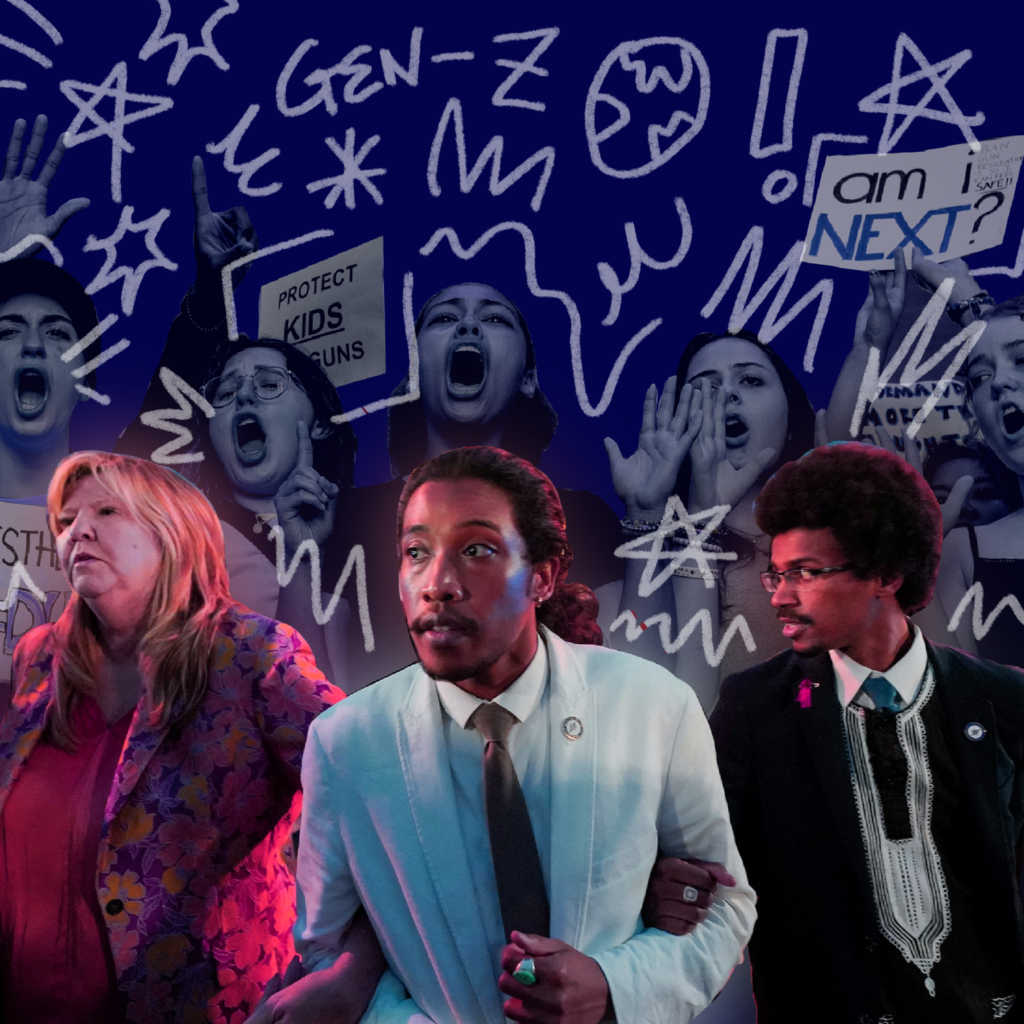In 2016, I began high school just as Donald Trump was elected president. Four years went by, colored by a global pandemic, protests against police violence, and almost weekly reports of school shootings. In January of my senior year, my AP Government teacher once abruptly ended a Zoom class with the words, “I think there’s been an insurrection — go watch the news.”
My generation, Generation Z, has grown up in a tumultuous political and social environment. It’s no surprise the so-called “protest generation” is seeking out a new model of politics on both sides of the aisle.

Gen-Z is ready to reimagine the role of a “politician.” Ejected from the halls of the Tennessee legislature for violating “decorum” after speaking out against gun violence, three state lawmakers dubbed “the Tennessee Three” were swiftly penalized by their older colleagues for speaking out of turn. But the same bullhorn speeches that were castigated by older lawmakers helped these young, fiery advocates amass a flock of young supporters. Students turned out in the thousands for protests at the statehouse, viral videos spread like wildfire across platforms like TikTok, and youth rallied around the image of these disruptor-politicians.
While many pointed to party-line divides in the Tennessee legislature, the model of the Tennessee Three exposed a larger fracture: the generational divide. Driven by the one-of-a-kind political moment during which we came of age, Gen-Z has developed a growing appetite for disruption— especially when it’s led by our own lawmakers. According to a poll by political scientists at Regent University, “emerging generations” are more likely to describe “effective leadership as influential, results-driven and leading by example.” More likely to reward directness and transparency, Gen-Z finds disruption more palatable— especially if it can achieve a desired result more effectively.
According to experts, this appetite for disruptive leadership is a product of the political milieu at the time when our generation “came of age.” A Harvard study noted that, from a global pandemic to protests against gun violence and racial inequity, this generation has “dealt with more trauma more quickly than any generation in 70 years.” Because all of these events occurred before the youngest Gen-Zers turned 25, this “whiplash” defined my generation. A survey by FiveThirtyEight and YouGov even found that this effect made politics “especially personal” for Gen-Z. For many of us, adulthood became synonymous with the rise of these increasingly urgent, life-or-death political issues.
Andra Gillespie, a political scientist at Emory University, explained to CNN that it’s not surprising that younger politicians are “usually going to be confrontational,” because they were socialized during the height of protests against climate change, racial inequity and gun violence. Justin Pearson, one of the Tennessee Three, launched his political career after years of fighting against a pipeline project in Memphis. The first Gen-Z Congressman, Maxwell Frost, spent years advocating for gun regulations with March for Our Lives before his election. This sense of urgency, of impending doom and immediate consequences, required an open attitude towards confrontational, disruptive approaches to changemaking. As more and more young people are elected, these attitudes have been translated from the streets to the halls of power.
And we’re already beginning to see the evidence of this generational shift. The Gen-Z model of a politician is intensely driven by values, willing to put advocacy before decorum, and urgency above traditional processes. The same week youth turned out in droves to protest on behalf of Justin Jones and Justin Pearson, they secured the victory of Janet Protasiwicz for Wisconsin’s Supreme Court open seat, and elected Brandon Johnson in Chicago’s mayoral race. These mobilizations reflect the urgency with which Gen-Z treats politics. John Della Volpe, director of polling at the Harvard Kennedy School Institute of Politics, told the Penn Capital-Star that “Gen Z are seeing first-hand the effects of climate change, and what it looks like to have reproductive rights stripped away, issues that may have felt a bit more abstract to earlier generations — it is a concrete, tangible connection between a policy and an outcome.” Accordingly, our generation favors a model of politician that equally reflects that anger and urgency.
The first iteration of Gen-Z politicians— like Rep. Frost— are already modeling Gen-Z’s “disruptor-politicians.”. After the Covenant School shooting that catalyzed Jones and Pearson in the Tennessee Statehouse, Rep. Frost made his own remarks in Congress, calling Republicans “cowards” for lack of legislative action.
“I rise today because I am furious, angry that three kids died today in Nashville, Tennessee,” Frost began. “Angry that hundreds of parents had to cry their eyes out today not knowing if their child would come home from school.” The political language of this generation’s politicians is raw, emotional, and unreserved.
This generational tide is by no means restricted to the progressive side of the aisle either. In the same year that Frost ran for Congress, Karoline Leavitt launched a Congressional campaign in New Hampshire as one of the first Gen-Z Republican candidates. On the campaign trail, Leavitt similarly defended novel approaches taken by younger politicians. Though she lost her campaign, Leavitt now serves as a spokeswoman for a pro-Trump super PAC, recently appearing in the New York Times as the voice of the campaign.
“We have people in Washington, DC, that have been clinging to power twice as long as I have been alive,” she told CNN. “My youth is a strength and that is showing on the campaign trail already.”
Ultimately, it’s clear that events like the expulsions of Justin Jones and Justin Pearson are met with widespread rebuke from the newest generation of voters. This growing divide separates older generations who value decorum and measured, incremental responses from younger generations that prioritize disruption and urgency above protocol. This pandemic generation, George Floyd generation, active shooter drills generation has something different in mind — the “disruptor-politician.”



